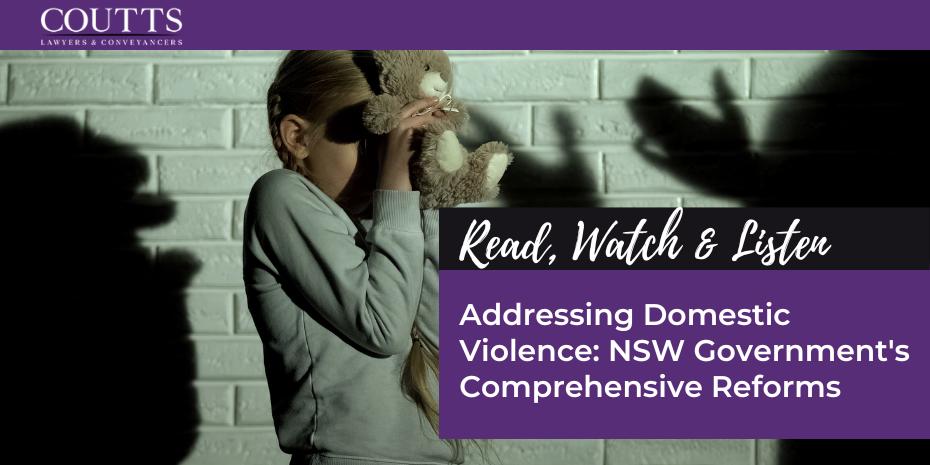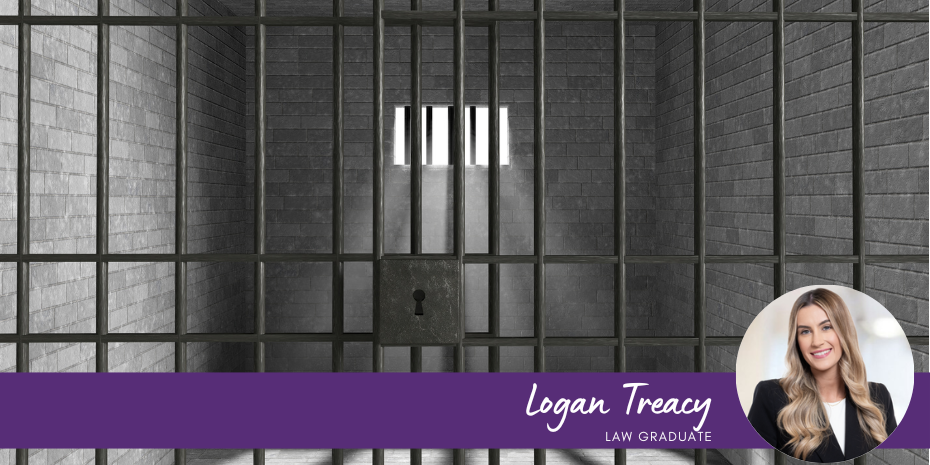Co-authored by: Isabel Strahan
KEY TAKE-OUTS:
- New South Wales Premier Dominic Perrottet has announced his intentions to crack down on domestic violence if he is re-elected in the upcoming State election.
- The changes he proposes would see harsher penalties for offenders and a shorter wait time for domestic violence matters to be heard in NSW Courts.
- The Perrottet government aims to review domestic violence sentencing, make enquiries in relation to a specialised Court for domestic violence offences which would improve the Court processes and appoint five new Magistrates.
As the upcoming State election approaches, the current New South Wales Premier Dominic Perrottet has revealed his plan to target the rapid growth of domestic violence cases.
In hopes of being re-elected, his government has put forward a proposal to combat the pitfalls of our justice system when dealing with the victims and perpetrators of domestic violence and furthermore, help reimagine an alternative process to ensure that harsher penalties are imposed.
Mr Perrottet has made his intentions for these changes very clear as he has stated; “we want to do everything we can to keep women and children right across NSW safe. We want to stamp out domestic violence across NSW. Enough is enough and it has to end.”
This article will break down each aspect of the proposal and its’ potential impact on the justice system for the victims and perpetrators of domestic violence.
What does domestic violence offences currently look like in New South Wales?
In New South Wales, there is no specific standalone offence that equates to ‘domestic violence’ however where an offence has been committed by someone who has (or has had) a domestic relationship with the victim, it is considered domestic violence.
What constitutes a ‘domestic relationship’ is found to include the following instances where people are, or have previously been;
- Married,
- De facto,
- In an intimate relationship,
- Living in the same household,
- In a relationship of dependence (for example, a carer), or
- A relative.
Therefore, if someone is in a domestic relationship with another and commits an offence, it will be categorised as a ‘domestic violence offence’ and they will be charged accordingly.
Some offences commonly charged in domestic violence situations are found in the Crimes Act 1900 (NSW) and Crimes (Personal and Domestic Violence Act 2007 (NSW), and include the following:
- Assault;
- Assault occasioning actual bodily harm;
- Assault occasioning grievous bodily harm;
- Intentionally choke/strangle;
- Stalk/intimidation; or
- Contravening an AVO.
Apprehended Domestic Violence Orders
In instances where the Police suspect that domestic violence has occurred, they may make an application for an Apprehended Domestic Violence Order (ADVO) to be made. The conditions of an ADVO varies however, may include the following:
- Prohibit the person from approaching, or attempting to approach the other, within a specified distance;
- Prohibit the person from contacting, attempting to contact or asking someone else to contact the other;
- Prohibit the person from locating, or attempting to locate the other;
- Prohibits the person from committing any domestic violence offence.
If you require more information regarding your options in relation to an ADVO, or what this means for your future, the Criminal Law team at Coutts is happy to guide you through the process.
The Perrottet Changes
Given the nature and prominence of domestic violence in New South Wales, the need for moving domestic violence offences through the Court system quickly has always been recognised as priority.
Despite this, due to the influx of cases post Covid-19 lockdown, the Court has experienced a substantial delay. These delays are unacceptable in ensuring of the safety of victims and ultimately, hinders the Court from achieving justice in a timely manner.
Mr Perrottet has recognised that the delay poses real consequences to the safety of the community and has proposed to appoint five new magistrates, study the suitability of a specified domestic violence Court and court list, and extensively review domestic violence sentencing to see if the current system adequately addresses the seriousness of the associated risks.
- Appointing Five New Magistrates
In an effort to combat the backflow of domestic violences cases, Mr Perrottet intends on appointing five new and permanent Magistrates.
The Attorney General Mark Speakman hopes that by appointing five new Magistrates that the system backlog from Covid lockdowns will be cleared by the end of 2024.
This will ensure that matters are heard swiftly and pushed through the system quickly.
- A Study of Creating a Specified Court and Funding a Separate Court List
If re-elected, the Perrottet government also hopes to assess the suitability and feasibility of electing a specified Court and funding a separate court list to deal with domestic violence matters.
BOCSAR has revealed that on average, it takes over 270 days for a domestic violence matter to be finalised at Court in comparison to the previous 160 days pre-Covid lockdown. During this time, the victims are in an extremely vulnerable position in relation to the risk of reoffending, the psychological harm of ongoing domestic violence and the trauma of the investigation.
The potential creation of a new Court and court list would intend to significantly decrease this wait time.
- A Review of Domestic Violence Sentences
Mr Perrottet also promises to review domestic violence sentencing which could possibly mean that there will be an increase in the penalties that are imposed by the Courts.
Conclusion
BOCSAR estimates that in New South Wales over 40,000 people who are aged 15 and over have experienced at least one instance of domestic violence within a 12 month period. This means that domestic violence effects 1 in every 155 Australians.
Because of Court closures and the heightened pressures of Covid-19 lockdowns, the Courts have been inundated with domestic violence matters which has caused a delay that ultimately, influences the time it takes for protection to be awarded.
If re-elected, Dominic Perrottet intends to crack down on domestic violence related offences by reviewing the penalties that are imposed by the Court, allocating several permanent Magistrates, and studying whether the current system is working.
Should you require advice relating to domestic violence, the Criminal Law team at Coutts have the experience and expertise to help guide you through the Court process.
ABOUT ISABEL STRAHAN:

Isabel joined the Coutts team in January 2022, as a Paralegal working within our Family & Criminal teams. She is currently studying a Bachelor of Laws and Bachelor of Arts, Majoring in International Relations and Minoring in Cultural Studies at the University of Wollongong. It is her dedication and hardworking nature that will see her go far within Coutts.
For further information please don’t hesitate to contact:
Isabel Strahan
Paralegal
info@couttslegal.com.au
1300 268 887
Contact Coutts today.
This blog is merely general and non-specific information on the subject matter and is not and should not be considered or relied on as legal advice. Coutts is not responsible for any cost, expense, loss or liability whatsoever to this blog, including all or any reliance on this blog or use or application of this blog by you.



